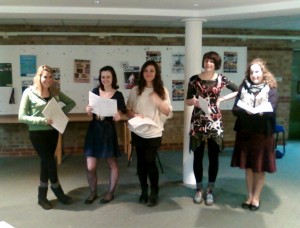
Nearly all the altos...
A long and hard-worked choral week, last week. With less than two weeks to go until the Chamber Choir’s Crypt Concert, we had a longer than usual rehearsal on Tuesday night, and the choir also had their second workshop day on Saturday. The Cecilian Choir suffered a blight of illnesses and looming course deadlines to be rather decimated at their Thursday session, which meant the planned rehearsal of looking at new repertoire had to be shelved: with so many members missing, it’s not worth looking at new pieces, better to wait until the group is near to capacity.
Saturday was a very long day, but an extremely useful one. Looking at the more difficult pieces in greater detail makes for long and tiring rehearsal periods, so the more challenging pieces were alternated with less difficult works, in order to provide some respite from part-by-part note-bashing and building pieces in sections. Credit to the choir: we covered eight pieces in the entire day, which is a very good work-rate indeed. And that doesn’t even include the warm-up piece, a brief arrangement I’ve made of Rusted Root’s Send Me On My Way, familiar these days as part of the soundtrack to the animated film, Ice Age.
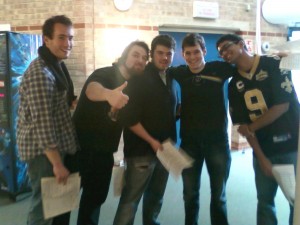
The state of the tenor
With the concert date so close, I am playing even less closed-score accompaniments to the pieces, to get the choir used to singing without the support of the piano beneath them; throwing in the odd bar to check intonation or highlight an important part is really all I want to be doing at this stage. Some of the more difficult pieces needed more than this, but we all felt we’d achieved greater confidence with some of the works, especially the Tippett Gwenllian which offers no vertical logic at all; the voice-parts only really come together in the final three bars.
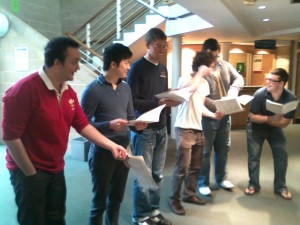
Bass desires...
We took several of the pieces out of the rehearsal room and into the foyer of the building itself; the lecture theatre in which we rehearse offers little supportive resonance, and I wanted the group to be able to sing in an acoustic with a little more reverberation; the foyer, whilst no church nave, is still a marked improvement over the lecture room. Suddenly, you could hear a little bloom around the colours of the Macmillan; as one of the basses remarked, “Gosh, it’s nice to hear the other voices for a change!” Rehearsing in tiered rows is great for visibility, but makes it difficult for the singers to hear other voice-parts.
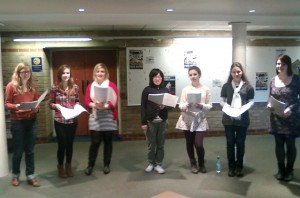
The Sopranos...
So, a long week. Work still to do, but things are starting to come off the page really well; the English madrigals are virtually leaping out of the score, and the rich harmonies of the Jackson Edinburgh Mass are starting to become more secure. The clock is ticking…

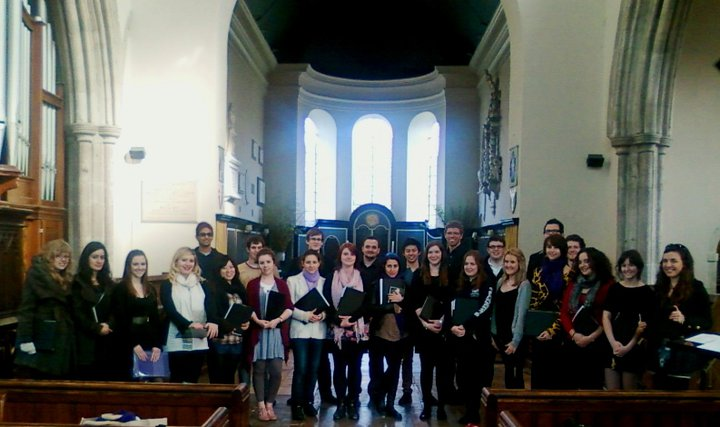
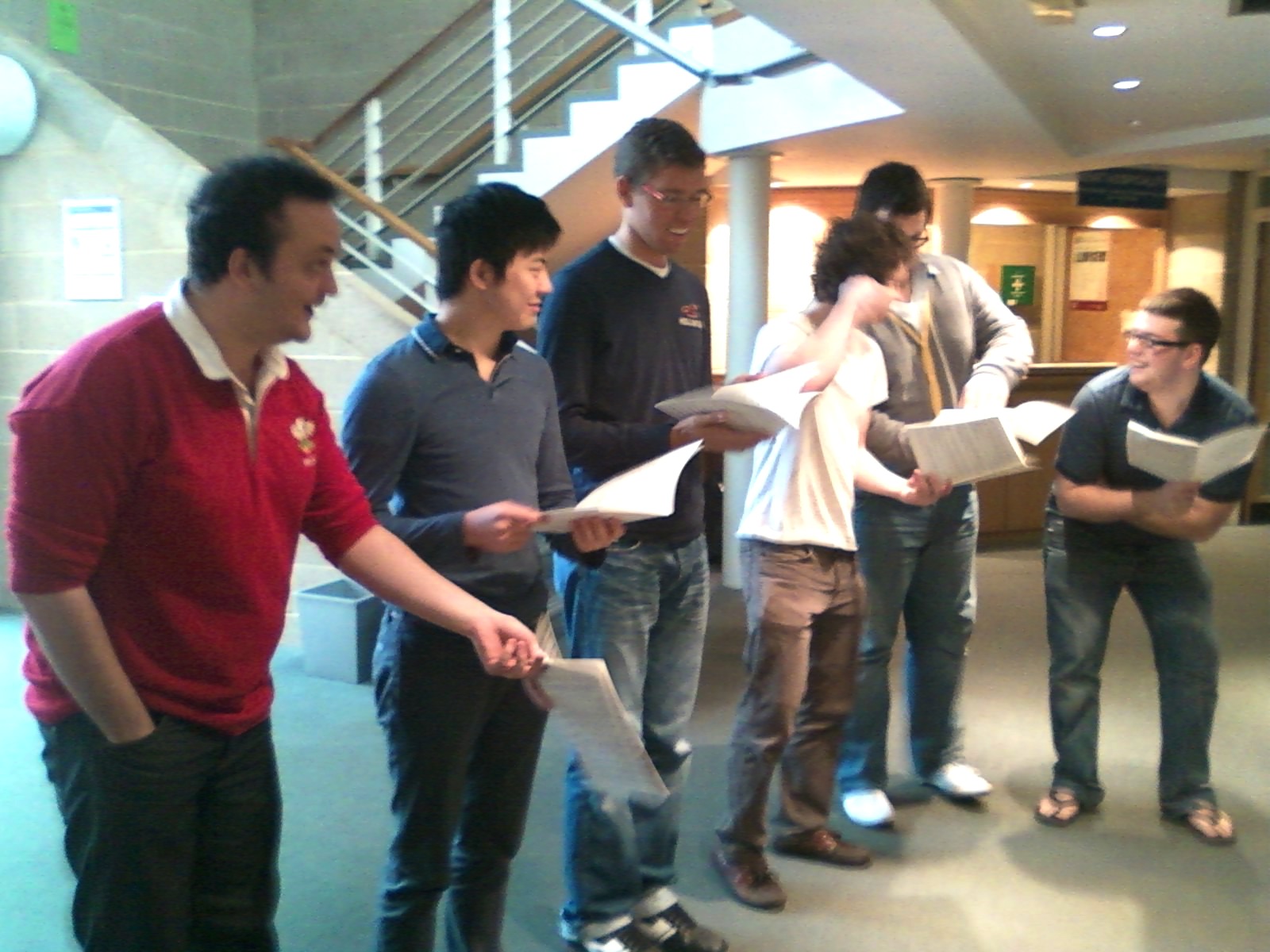





 Having kicked off in lively fashion with Perspice Christicola, better known as Sumer is icumen in but with a sacred Latin text, to get everyone warmed up, we sojourned north of Hadrian’s Wall with Macmillan’s A Child’s Prayer. This has been a favourite piece of mine for a while – it’s one of those pieces that, at first hearing, reaches straight into your soul. We built the three main chords from the basses upwards to get them balanced and in tune, and practiced moving from one chord to the next to make sure the singers knew where they were going. And then – we sang them as written. It’s one thing to know and love a piece that you’ve listened to many times, but to be in the midst of the sound the first time it comes off the page and into the air is a thrilling moment. We then added the two (patient!) solo sopranos, and set off through the whole piece. In the rich and resonant acoustic of the Cathedral Crypt, it will be overwhelming…
Having kicked off in lively fashion with Perspice Christicola, better known as Sumer is icumen in but with a sacred Latin text, to get everyone warmed up, we sojourned north of Hadrian’s Wall with Macmillan’s A Child’s Prayer. This has been a favourite piece of mine for a while – it’s one of those pieces that, at first hearing, reaches straight into your soul. We built the three main chords from the basses upwards to get them balanced and in tune, and practiced moving from one chord to the next to make sure the singers knew where they were going. And then – we sang them as written. It’s one thing to know and love a piece that you’ve listened to many times, but to be in the midst of the sound the first time it comes off the page and into the air is a thrilling moment. We then added the two (patient!) solo sopranos, and set off through the whole piece. In the rich and resonant acoustic of the Cathedral Crypt, it will be overwhelming…